SHOWCASE @laurahird.comTo read Mark's story, 'Grace Williams' on the Showcase section of this site, click here; for Mark's story, 'I Know You' click here or for his story 'The Quesion' click here
|
Mark Gallacher was born in 1967, the youngest of seven children, and grew up in Girvan, a small town on the west coast of Scotland. The sea at his front door, the Ayrshire hills at the back. His father died in a traffic accident when he was five years old. He graduated from Dundee College of Technology and moved to England and worked in Manchester for a number of years. He returned to Scotland and lived in Edinburgh. In 1999, crazy with love, he moved to Denmark to live with his Danish girlfriend. They have one son. They are still crazy. His pamphlet of poetry, �More Than A Dedication� was published by Envoi Poets Publication - �profoundly moving� - Chapman Magazine; �haunting poems that deserve to be read and re-read�- New Hope International. 'Grace Williams' was originally published in Chapman Magazine. MARK'S POETRY HAS APPEARED IN...
AND HIS SHORT STORIES IN...
MARK'S INFLUENCES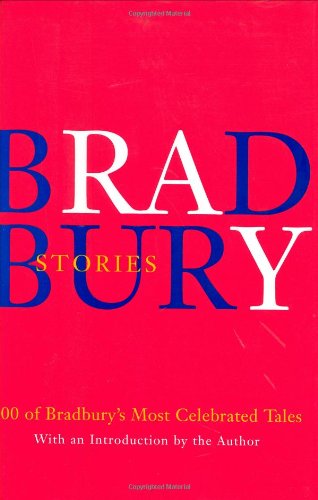 "The single biggest literary influence of my younger years were the writings of Ray Bradbury (see left). His beautiful short stories were gifts of wonderment in an otherwise impoverished childhood. I looked for his books everywhere. While storms lashed my small council house, I ran through the cornfields of Illinois, walked the sands of Mars. I discovered poetry like most teenagers, when hormones suddenly assembled booming orchestras of despair and joy in the ampitheatre of my head. I tended to discover single poems rather than poets in the few anthologies in the town or the school library. One of my prized possessions is a stolen beat up anthology from my old school's library, �The Contemporary American Poets,� edited by Mark Strand "The single biggest literary influence of my younger years were the writings of Ray Bradbury (see left). His beautiful short stories were gifts of wonderment in an otherwise impoverished childhood. I looked for his books everywhere. While storms lashed my small council house, I ran through the cornfields of Illinois, walked the sands of Mars. I discovered poetry like most teenagers, when hormones suddenly assembled booming orchestras of despair and joy in the ampitheatre of my head. I tended to discover single poems rather than poets in the few anthologies in the town or the school library. One of my prized possessions is a stolen beat up anthology from my old school's library, �The Contemporary American Poets,� edited by Mark Strand  (see right). I committed that crime to keep William Stafford�s �Travelling Through The Dark�, Theodore Roethke�s �Elegy For Jane�, Louis Simpson�s �The Redwoods� and Richard Wilbur�s �Running.� But the short story is my first love." (see right). I committed that crime to keep William Stafford�s �Travelling Through The Dark�, Theodore Roethke�s �Elegy For Jane�, Louis Simpson�s �The Redwoods� and Richard Wilbur�s �Running.� But the short story is my first love."Mark Gallacher MARK'S TOP 5 COLLECTIONS & ANTHOLOGIES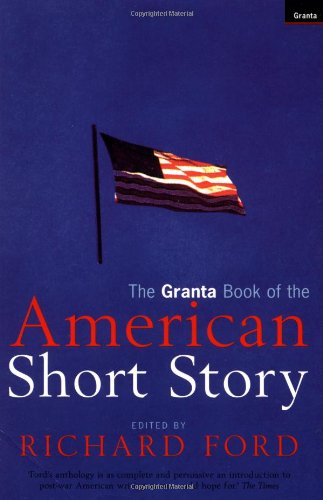 'THE GRANTA BOOK OF THE AMERICAN SHORT STORY' - Edited by Richard Ford 'THE GRANTA BOOK OF THE AMERICAN SHORT STORY' - Edited by Richard FordClick image to read about the anthology on the official Granta website; to read Robert Birnbaum's interview with Richard Ford on the Identity Theory website, click here or to order the book, click here 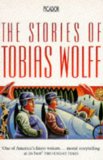 'THE STORIES OF TOBIAS WOLFF' 'THE STORIES OF TOBIAS WOLFF'Click image to read Joan Smith's Salon.com interview with Wolff; for David Schreiberg's interview with Wolff on the Stanford Today site, click here or to order the book, click here 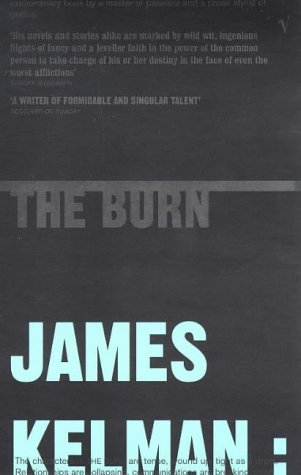 'THE BURN' by James Kelman 'THE BURN' by James KelmanClick image to read a transcript of Dr Aaron Kelly's lecture on 'The Burn' on the University of Edinburgh website; for a selection of Kelman-related links on The Modern World's Scriptorium website, click here or to order the book, click here 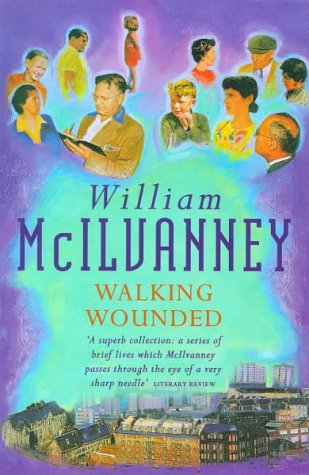 'WALKING WOUNDED' by William McIlvanney 'WALKING WOUNDED' by William McIlvanneyClick image to read Alan MacGillivray's essay, 'Natural Loyalties: The Work of William McIlvanney' on the University of Glasgow website; for a profile and bibliography of McIlvanney on the British Council's Contemporary Writers website, click here or to order the book, click here 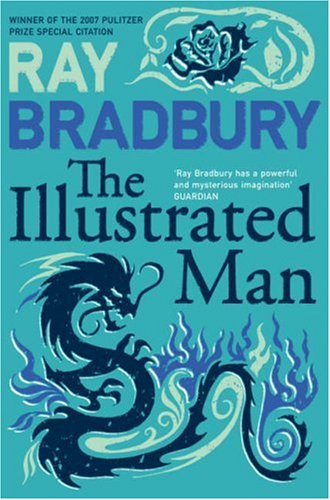 'THE ILLUSTRATED MAN' by Ray Bradbury 'THE ILLUSTRATED MAN' by Ray BradburyClick image to visit the Ray Bradbury Online website; to listen to Don Swaim's 1992 and 1993 interviews with Bradbury on the Wired for Books website, click here or to order the book, click here MARK'S LINKSMARK'S OFFICIAL WEBSITE
PULP.NET
View My Guestbook Sign My Guestbook Leave a message for Mark on the SITE 
| |
|
� Magma Poetry
� Acumen
� Cutting Teeth
� Envoi
� Keystone
� Litmus
� Orbis
� Prop Online
� Smith's Knoll
� Prop Online
� The Mandeville
� The Wandering Dog
� Pulp.net

